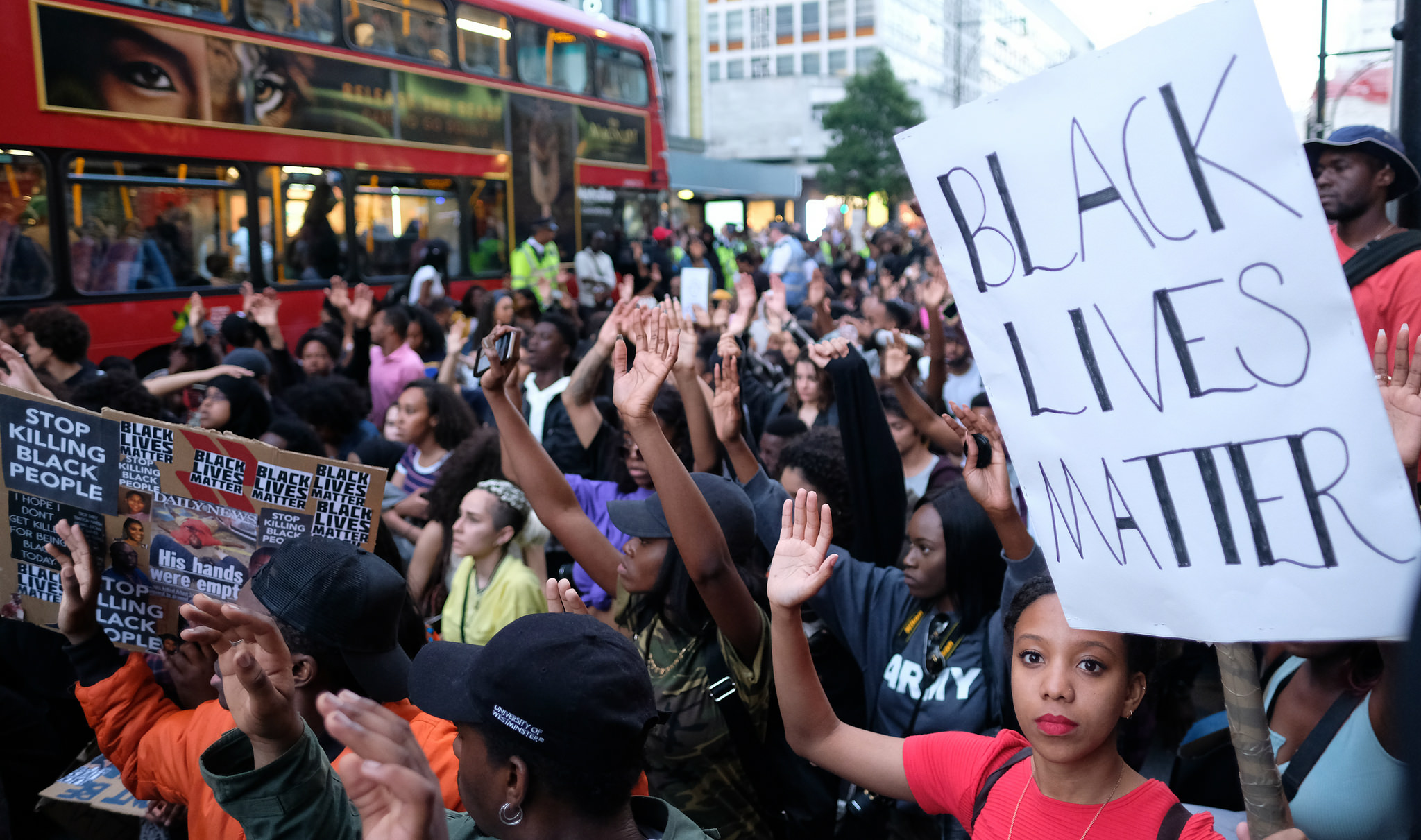A protest movement launched in America – #BlackLivesMatter – has landed in the UK.
The movement calls for a response to racism, violence and oppression targeted towards black people.
What sparked the Black Lives Matter movement?
Black Lives Matter was launched in response to the killing of Trayvon Martin, aged 17, in 2012. Martin was shot dead in Florida where he had been visiting his father’s fiancée. Martin’s killer, George Zimmerman, was a neighbourhood watch coordinator. Zimmerman claimed he acted in self-defence. No charges were initially brought against him, but when he was eventually taken to court, Zimmerman was acquitted (that is, found not guilty) by a jury.
After the acquittal, a Facebook post using the phrase “black lives matter” was shared widely. #BlackLivesMatter was swiftly adopted as the slogan of the US’s modern civil rights movement.
Why has the movement come to the UK?
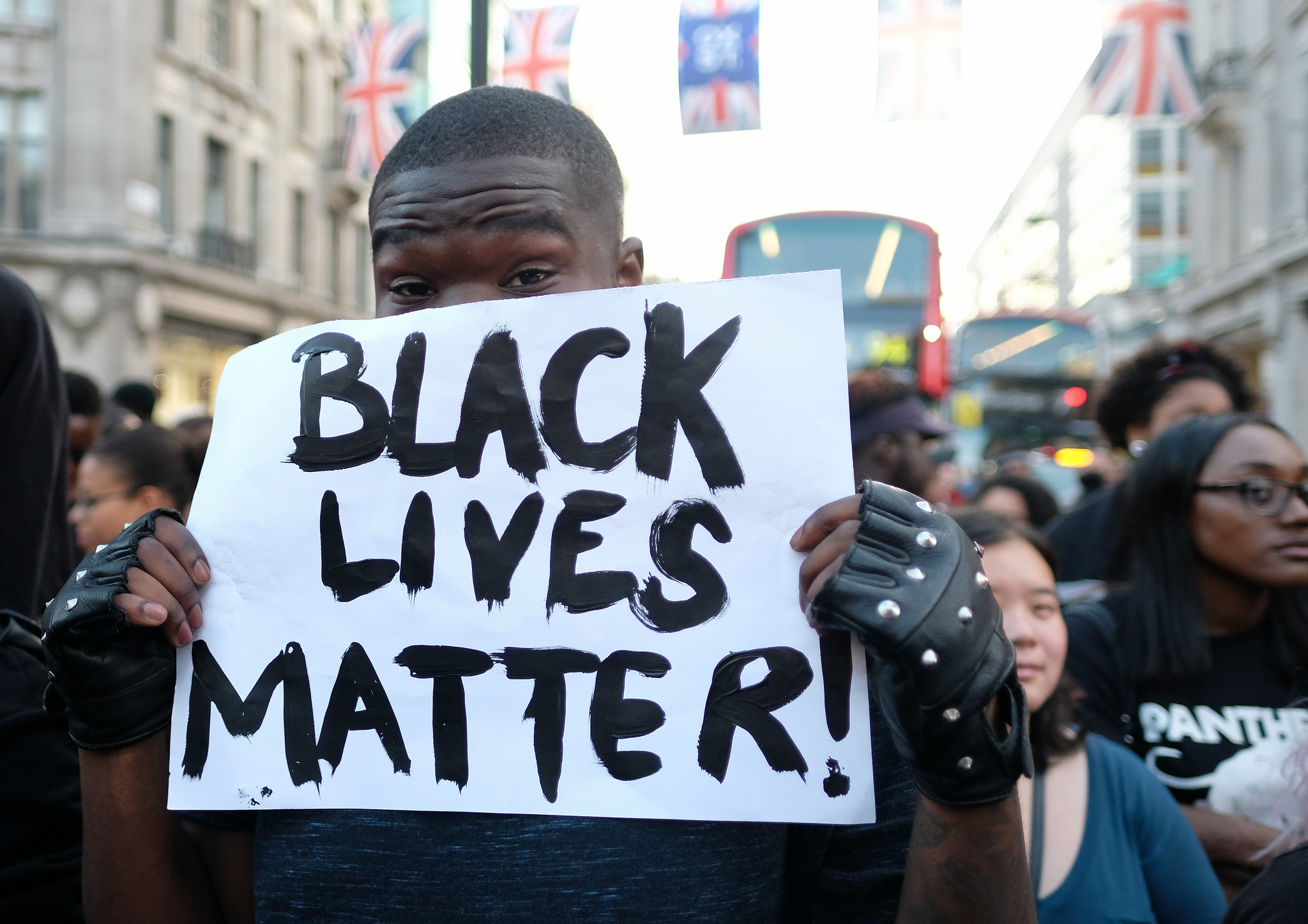
There is no shortage of news stories about black people (usually men) killed by police in the United States. Some stories are accompanied by disturbing scenes, for example, this video footage released last Friday (5 August 2016). Buzzfeed produced a non-exhaustive timeline of unarmed black people killed by police officers in the US in 2015. It’s a well-known issue in the States, but why bring the movement to the UK?
Natalie Jeffers, co-founder of Black Lives Matter UK, said that although there may be fewer guns used in the UK, “there is a war going on against black people”. Jeffers expressed concern for “British families left fighting for justice over their loved ones suffering state violence” and said that the heated UK Brexit debate was being “reflected in the rise in racism at street level”.
Statistics show worrying trends in the experiences of black people in Britain. As we have previously reported, young black men are more likely to be stopped and searched by police than young white men. In education, the justice system and employment, evidence suggests that people continue to be put at a disadvantage because of the colour of their skin.
What are activists doing to protest?
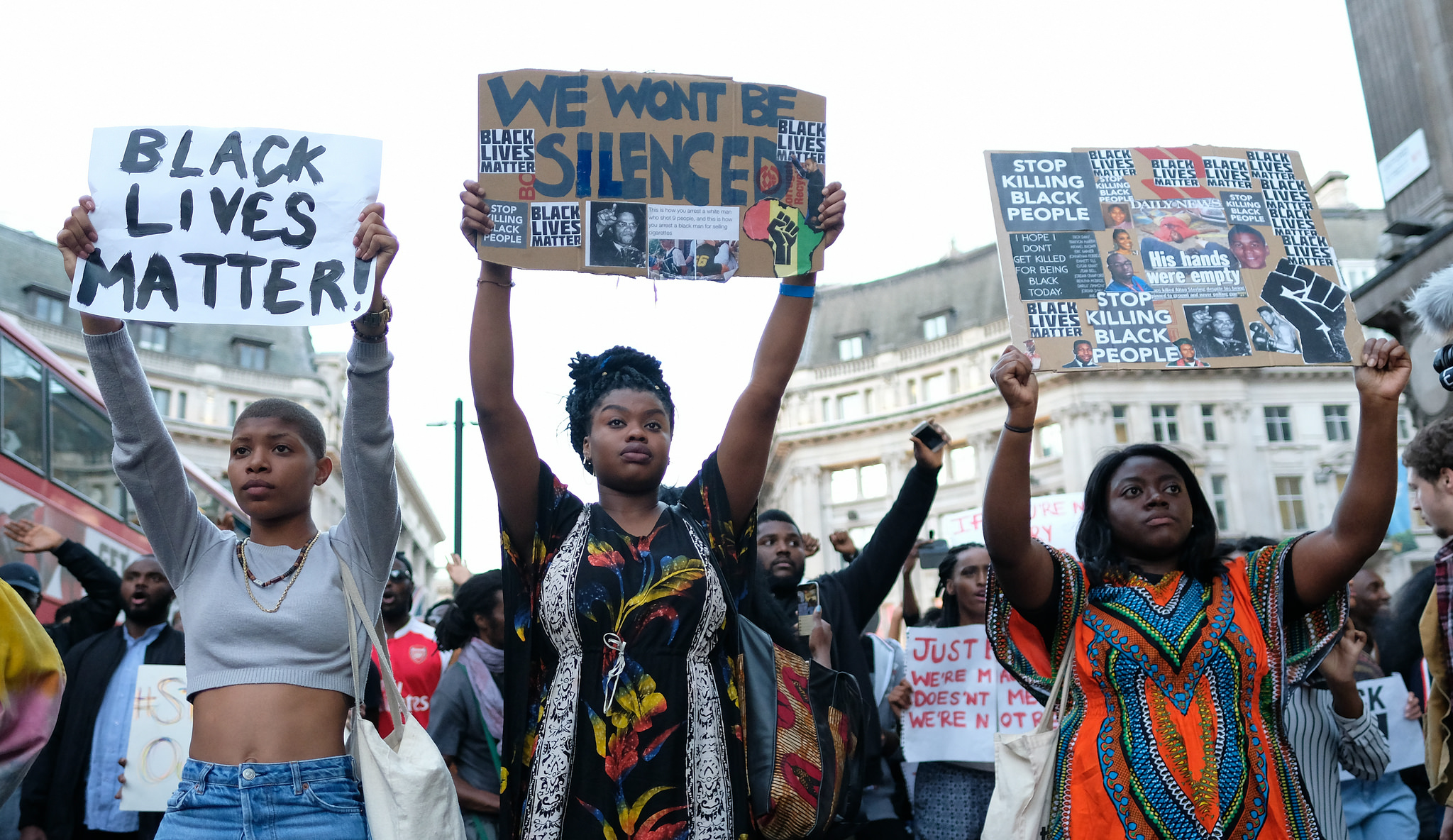
Black Lives Matter UK activists chose to stage their most recent protests on a date close to the fifth anniversary of the police shooting of Mark Duggan, a 29-year-old Londoner. The killing resulted in riots across England in 2011. Duggan’s family are currently challenging an inquest verdict of lawful killing.
Campaigners staged protests in London, Birmingham, Nottingham and Manchester. One sit-in blocked traffic on a road close to Heathrow airport. The location was chosen to highlight nearby immigration detention centres and to remember Jimmy Mubenga, who suffocated while being forcibly restrained by private security agents on a deportation flight.
Mixed reactions
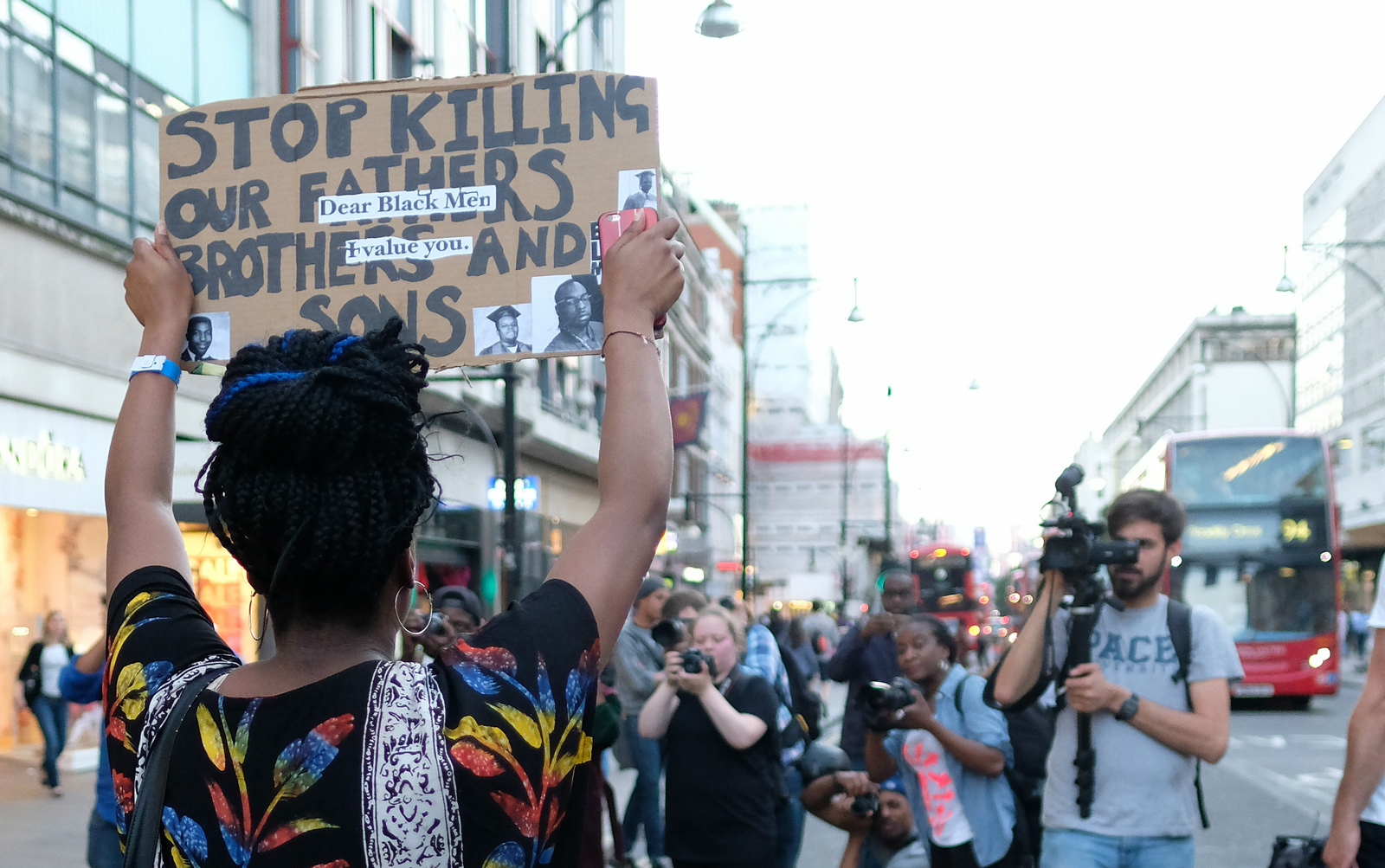
The group has been criticised for their choice of location. Commentators on social media suggest that disrupting people’s holiday plans is likely to be unhelpful to the cause. Some claim that the UK branch of Black Lives Matter is focusing on the wrong issues.
Others have taken to social media in support of the UK movement. One commentator blogged that the UK Black Lives Movement gave her hope that racism will be taken seriously and challenged. She stated “while racism in America is, currently, more visible… racism in Britain can be just as deadly”. A BBC report has gathered together comments from various sources arguing that the Black Lives Matter movement is ‘needed in the UK‘.
How can human rights help?
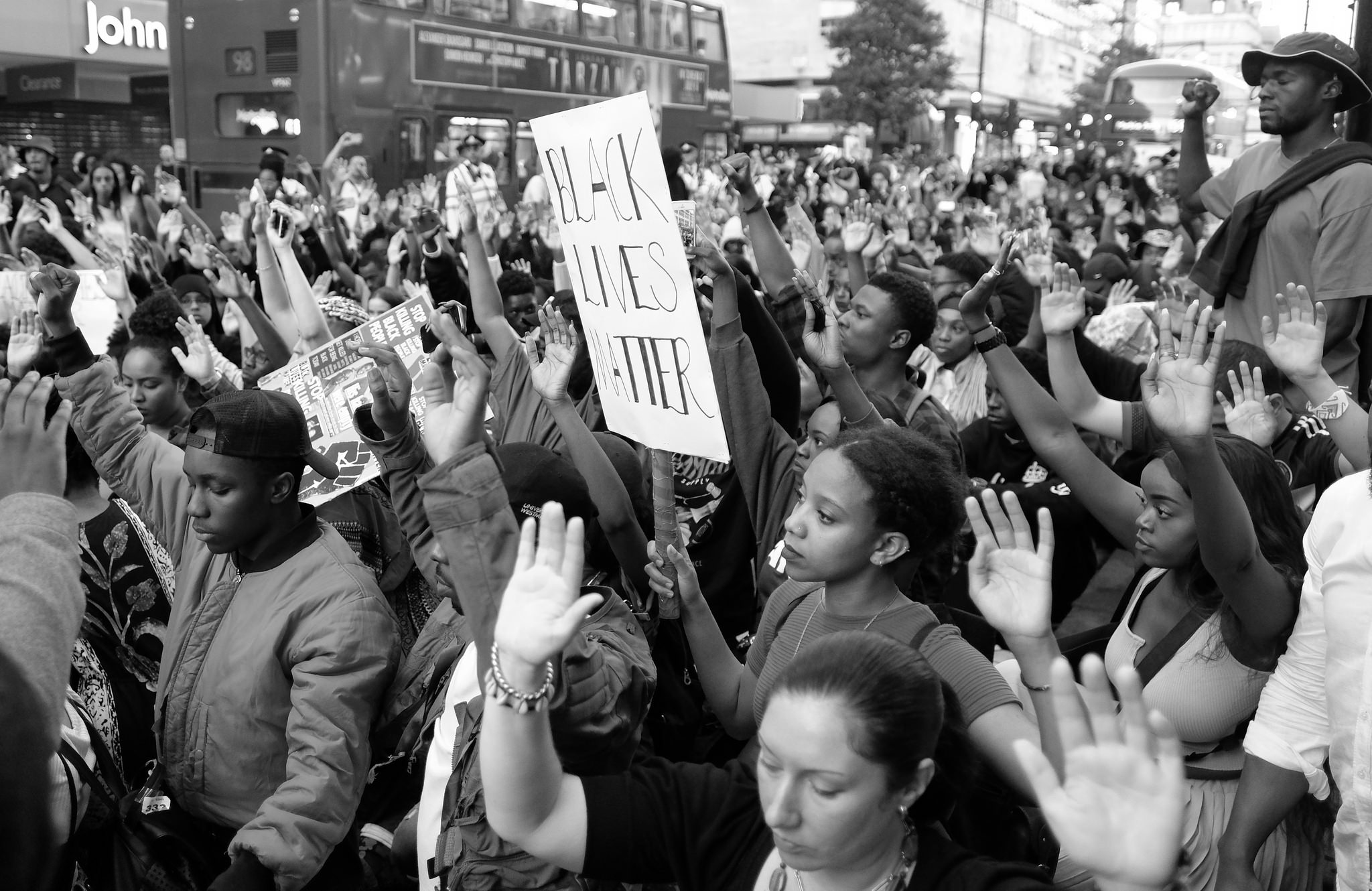
UK law protects people against racial discrimination through the Human Rights Act 1998 and the Equality Act 2010.
The Equality Act applies to certain people, such as employers and service providers, and makes it unlawful for them to discriminate on the ground of race. The Human Rights Act gives the European Convention on Human Rights effect in UK law. One of the rights protected under the Convention (Article 14) prohibits discrimination in the exercise of other rights on the basis of certain characteristics including race, colour and national origin.
The Human Rights Act also protects the freedom of assembly and association, which enables people to carry out peaceful protests and demonstrations without disproportionate interference from authorities.
Learn more about the right to freedom from discrimination and freedom of assembly with our infographic posters. See also our race discrimination explainer and our other equality resources.

